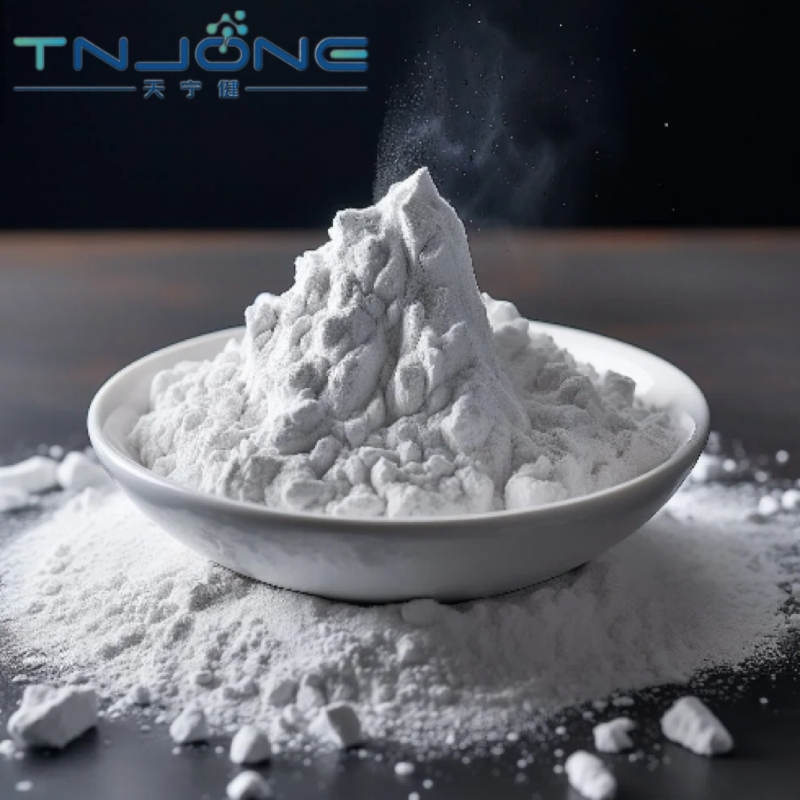-
Categories
-
Pharmaceutical Intermediates
-
Active Pharmaceutical Ingredients
-
Food Additives
- Industrial Coatings
- Agrochemicals
- Dyes and Pigments
- Surfactant
- Flavors and Fragrances
- Chemical Reagents
- Catalyst and Auxiliary
- Natural Products
- Inorganic Chemistry
-
Organic Chemistry
-
Biochemical Engineering
- Analytical Chemistry
-
Cosmetic Ingredient
- Water Treatment Chemical
-
Pharmaceutical Intermediates
Promotion
ECHEMI Mall
Wholesale
Weekly Price
Exhibition
News
-
Trade Service
1H-1,2,4-Triazole-3-carboxylic acid, 1-methyl-, methyl ester, commonly referred to as methyl triazole-3-carboxylate, is a synthetic chemical compound that is widely used in the chemical industry.
It is a white or slightly yellowish solid that is soluble in organic solvents but only slightly soluble in water.
The compound is used in various applications, including as a catalyst for the production of polyurethane materials, as an antioxidant in plastics and lubricants, and as a flame retardant in textiles and other materials.
Despite its widespread use, there have been concerns about the safety of methyl triazole-3-carboxylate.
Some studies have suggested that the compound may be harmful if ingested, inhaled, or if it comes into contact with the skin.
In this article, we will examine the potential health risks associated with methyl triazole-3-carboxylate and discuss measures that can be taken to ensure the safe use of this chemical in the chemical industry.
Health Risks:
- Skin Irritation:
Methyl triazole-3-carboxylate is a skin irritant and can cause skin inflammation and redness when it comes into contact with the skin.
Prolonged exposure to the compound can lead to more severe skin conditions, including dermatitis and other allergic reactions.
- Inhalation Risks:
The inhalation of methyl triazole-3-carboxylate can cause respiratory problems, including coughing, wheezing, and shortness of breath.
In severe cases, it can lead to pulmonary edema, a condition in which the lungs become filled with fluid, which can be fatal.
- Ingestion Risks:
Ingestion of methyl triazole-3-carboxylate can cause stomach pain, nausea, vomiting, and diarrhea.
In severe cases, it can lead to organ damage and death.
- Cancer Risks:
Some studies have suggested that methyl triazole-3-carboxylate may be carcinogenic and can increase the risk of cancer in humans.
However, other studies have found no evidence of cancer-causing properties in the compound.
Precautions:
To ensure the safe use of methyl triazole-3-carboxylate in the chemical industry, the following precautions should be taken:
- Wear suitable protective clothing, including gloves, safety glasses, and respiratory protection, when handling the compound.
- Do not ingest the compound, and avoid inhaling its vapor or dust.
- Wash hands thoroughly after handling the compound.
- Store the compound in a cool, dry place, away from sources of ignition and heat.
- Avoid contact with the compound by covering exposed skin, and wash skin immediately if it comes into contact with the compound.
- Implement appropriate emergency response procedures in the event of a spill or leak.
Conclusion:
Methyl triazole-3-carboxylate is a widely used chemical compound in the chemical industry, but it can also pose serious health risks if not handled properly.
To ensure the safe use of the compound, it is important to follow appropriate safety protocols and to be aware of its potential health risks.
By taking these precautions, the chemical industry can minimize the risk of harm to workers and the environment.







